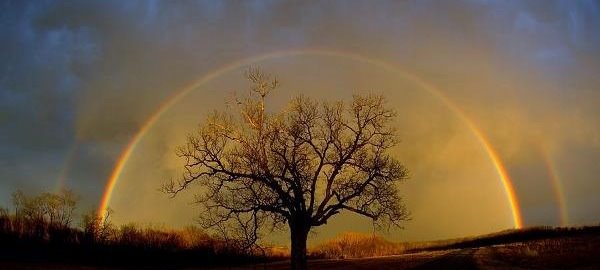The Shore of the Cosmic Ocean
 This is an annotated transcript of the video clip that can be found in the navigation column, down at the bottom, under the same title. It's Carl Sagan's materialist manifesto, overlying an unspoken declaration of the irrelevance of supernaturalism. It must surely rank among the most eloquent statements of scientific confidence and ambition ever made. A similar transcript is given in the first chapter of the printed version of Cosmos. But that version is missing some of the best touches of this one.
This is an annotated transcript of the video clip that can be found in the navigation column, down at the bottom, under the same title. It's Carl Sagan's materialist manifesto, overlying an unspoken declaration of the irrelevance of supernaturalism. It must surely rank among the most eloquent statements of scientific confidence and ambition ever made. A similar transcript is given in the first chapter of the printed version of Cosmos. But that version is missing some of the best touches of this one.
The Cosmos is all that is, or ever was, or ever will be. Our contemplations of the Cosmos stir us. There's a tingling in the spine, a catch in the voice, a faint sensation, as of a distant memory, of falling from a great height. We know we are approaching the grandest of mysteries.
This defines the intended scope of the Cosmos, but though it fails to rule out anything specific, one understands immediately that the supernatural and the paranormal will not be needed.
The size and age of the Cosmos are beyond ordinary human understanding. Lost somewhere between immensity and eternity is our tiny planetary home, the Earth. For the first time we have the power to decide the fate of our planet and ourselves. This is a time of great danger. But, our species is young and curious and brave and it shows much promise. In the last few millennia, we have made the most astonishing and unexpected discoveries about the Cosmos and our place within it. I believe our future depends powerfully on how well we understand this Cosmos, in which we float like a mote of dust in the morning sky.
Adopting a god-like perspective, we are said to be lost in eternity, but yet the present is seen as a special time of awakening, as Carl returns to the collective "we".
We're about to begin a journey through the Cosmos. We'll encounter galaxies and suns, and planets, life and consciousness, coming into being, evolving and perishing; Worlds of ice and stars of diamond; atoms as massive suns, universes smaller than atoms. But it's also a story of our own planet, and the plants and animals that share it with us. And it's a story about us; how we achieved our present understanding of the Cosmos, how the Cosmos has shaped our evolution and our culture, what our fate may be.
A taste of things to come is offered, an enticement, and also a promise to glimpse the future.
We wish to pursue the truth no matter where it leads. But to find the truth we need imagination and skepticism both. We will not be afraid to speculate, but we will be careful to distinguish speculation from fact. The Cosmos is full beyond measure of elegant truths, of exquisite interrelationships, of the awesome machinery of nature.
A credo for study of the Cosmos is advanced, using a balance of imagination and skepticism as we explore. And again, we will be focused on the "machinery of nature."
The surface of the Earth is the shore of the cosmic ocean. On this shore, we have learned most of what we know. Recently, we have waded a little way out into the sea, maybe ankle deep, and the water seems inviting. The ocean calls to us. Some part of our being knows this is from where we came. We long to return. And we can because the Cosmos is also within us. We are made of star stuff. We are a way for the Cosmos to know itself.
This is a metaphor that has stayed with me ever since I heard it in 1980, and it became a core concept in a successful early research paper of mine, written about then. But it's our atmosphere that is the shore of the Cosmic ocean, not the surface of Earth. We don't leave the shoals until we venture well above the atmosphere. And Earth's magnetic field creates a harbor of sorts, fending off the solar wind.
This paragraph borrows a concept from Alan Watts that originated at least a decade before "Cosmos" appeared. Sagan says: "We are a way for the Cosmos to know itself." Watts says, somewhat more verbosely: "We are not egos in bags of skin, that come into the world. We come out of it; as trees leaf and cows calve, the universe "peoples". We are the universe, become conscious of itself." Some of the most important ideas are also among the simplest.
The journey for each of us begins here. We're going to explore the Cosmos in a ship of the imagination, unfettered by ordinary limits on speed and size, drawn by the music of cosmic harmonies, that can take us anywhere in space and time. Perfect as a snowflake, organic as a dandelion seed, it can carry us to worlds of dreams and worlds of fact. Come with me.

 Click to enlarge
Click to enlarge





